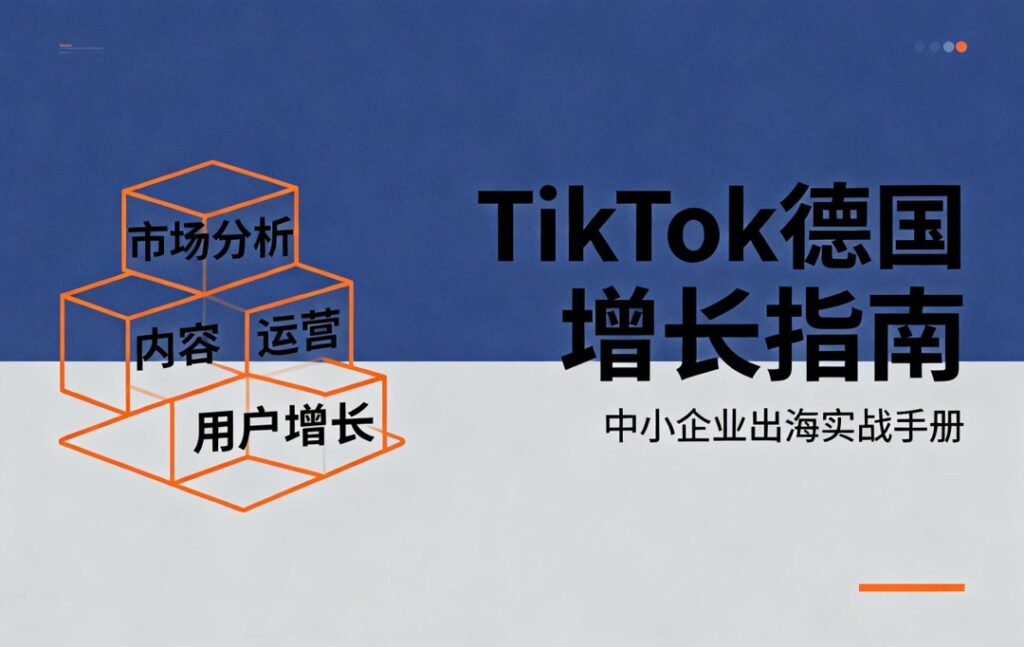Since its launch in late March 2025, TikTok Shop Germany has achieved rapid monthly order growth of 431 TP3T. Short video content with shoppable features on the platform increased by nearly 2001 TP3T within two months, and the number of registered merchants has exceeded 14,000. This trend reflects European consumers’ strong acceptance of social commerce and presents unprecedented overseas expansion opportunities for small and medium-sized enterprises (SMEs). In Germany—the largest economy in Europe—brands face challenges related to compliance risks, logistics costs, and localized operations. However, TikTok Shop’s early-stage traffic support offers SMEs an optimal window to enter the market with "light asset investment, low-effort operation, and agile decision-making iteration."
Among numerous success stories, a Beijing-based team transformed ordinary toothpicks into a viral “social currency” product, selling individual units at 20 times their original price and quickly gaining popularity among young consumers due to its trendy appeal. A pet memorial products seller achieved annual sales exceeding $22 million through emotional resonance and topic-driven marketing. During Halloween, a flameless candle light project sold 127,000 units within 28 days, generating nearly $200,000 in revenue. These cases collectively demonstrate that the core drivers behind rapid growth in TikTok’s German market are: unlocking emotional value and social currency, integrating creative product selection with seasonal or holiday contexts, and implementing data-driven,精细化 operation.

The first key to success lies in the emotional attributes of the product itself. German consumers place high value on personalization and emotional experience; transforming products into emotionally resonant “social currencies” significantly enhances virality and engagement. Second is creative product selection aligned with holidays and popular IPs—such as Harry Potter-themed candle lights—that precisely match seasonal moods and generate breakout performance. Third is leveraging short-form video content and influencer live-selling models, continuously optimizing advertising creatives and product detail pages to address consumer concerns and improve conversion rates.
Despite significant market potential, SMEs still face challenges in international expansion, including compliance risks, difficulties in converting traffic into sales, and insufficient operational experience. There are notable differences between cross-border and local stores on TikTok Shop in terms of entry requirements and logistics models. The EU’s strict VAT regulations impose stringent tax registration compliance demands, while homogeneous creativity and imprecise targeting can undermine advertising effectiveness. The LnRu platform leverages AI-powered multilingual processing technology to provide merchants with solutions for one-click generation of localized content in German, French, and other languages. Its multi-channel intelligent distribution system enables an efficient "create once, distribute everywhere" model. Meanwhile, its real-time data analytics module allows merchants to monitor traffic and conversion performance across channels promptly, establishing a closed loop of creation, distribution, and optimization—greatly enhancing operational efficiency. At the practical level, SMEs should prioritize capturing the platform’s early-mover advantages, planning emotionally engaging content around key holiday events, and using the "small-batch, fast-turnaround" model to test market response and avoid inventory overstock. Leveraging short-video influencers enables access to more precise traffic at lower cost. In the long term, the integration of content and e-commerce in Germany’s social commerce landscape will deepen further. Platform algorithms will play an increasingly critical role in optimizing conversion pathways, and tools such as AI-powered product forecasting and automated compliance checks will become essential for overseas expansion. For brands, building dual capabilities in technological adaptability and localized operations will not only enable rapid scale-up in the short term but also sustain growth amid intensifying competition.